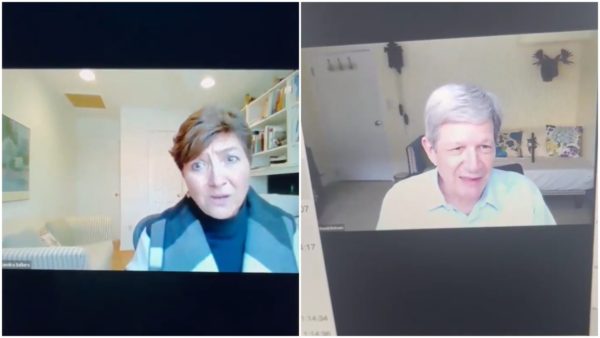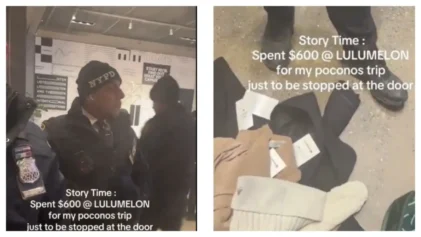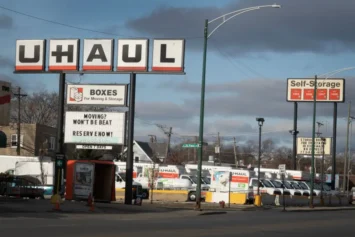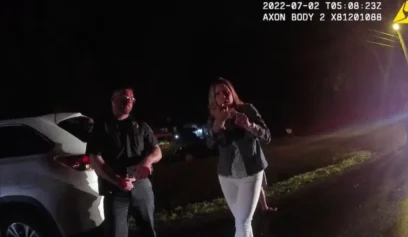A second professor at the Georgetown University Law Center has resigned from the school after a discussion with a colleague about student performance included what many have deemed racist remarks about Black students.
David Batson was an adjunct professor at Georgetown before submitting his letter of resignation to the Georgetown Dean and Executive Vice President William Treanor on Friday, March 12.

“I am deeply saddened by the disturbing situation caused by the recorded Zoom conversation between Ms. Sellers and myself in which insensitive remarks were made regarding the performance of Black students at the Georgetown University Law Center,” Batson wrote in his letter, according to NBC News. “The sentiments and opinions expressed during the conversation are not mine, and do not characterize my experience with Georgetown students.”
Batson and his former colleague, Sandra Sellers, became the center of controversy after video footage from a Zoom call was posted to Twitter by a student on Wednesday, March 10.
“I hate to say this — I end up having this, you know, angst every semester — that a lot of my lower ones are Blacks. Happens almost every semester,” Sellers said. Batson responded by saying “Mmm-hmmm” and nodding his head.
Sellers continued, saying, “and it’s like ‘Oh, come on!’ It’s some really good ones but there are also usually some that are just plain at the bottom. It drives me crazy. So I feel bad.”
Batson responded by saying, “What drives me crazy is, you know, the concept of how that plays out and whether that is, you know, my own perceptions playing in here and with certainty, my own, my own, uh, unconscious biases, you know, playing out in the scheme of things.”
“Well that’s why, I mean, I think we do a good job of keeping track of did they open their mouths,” Seller responded with a laugh, to which Batson responded, “Exactly.”
Sellers, who was fired by Treanor on Thursday, March 11, apologized for her remarks in her letter of resignation, but she was terminated before she could resign. “I would never do anything to intentionally hurt my students or Georgetown Law and wish I could take back my words,” Sellers said.
Treanor noted Sellers did initially tell him she planned to resign, but he terminated her immediately instead. He added he was “appalled” by the conversation and there would be changes taking place at the school to address the issues.
“I am appalled that two members of our faculty engaged in a conversation that included reprehensible statements concerning the evaluation of Black students,” Treanor said in a statement to students. “This is by no means the end of our work to address the many structural issues of racism reflected in this painful incident, including explicit and implicit bias, bystander responsibility, and the need for more comprehensive anti-bias training.”
Batson acknowledged his error in not being more direct in refuting Sellers’ comments, but said he didn’t quite know how to respond at the time.
“When suddenly and unexpectedly faced with such remarks, it is challenging to know how to appropriately respond,” Batson wrote. “In the moment, my heartfelt response was to point the discussion toward what I believe is our personal responsibility — to be aware of and respond to potential unconscious bias in all our undertakings. … I understand, however, that I missed the chance to respond in a more direct manner to address the inappropriate content of those remarks. For this I sincerely apologize.”
The video footage was initially posted to online database Panopto, which houses recordings for students to access. It is said to have been up for weeks, but has since been taken down.
Despite Treanor’s promises and the departure of the two professors, Black students at Georgetown said this is not an isolated incident. According to Maxine Walters, the president of the university’s Black Law Student Association, they’ve sent complaints detailing racist incidents at least three times in the last year.
The group has demanded racial sensitivity training, a review of current grades to analyze if bias has played a role and a commitment from the university to hire more Black professors.
“I believe that the only thing that’s different here is that the professors were recorded,” Walters said. “This is definitely happening behind closed doors at our law school and other law schools.”


